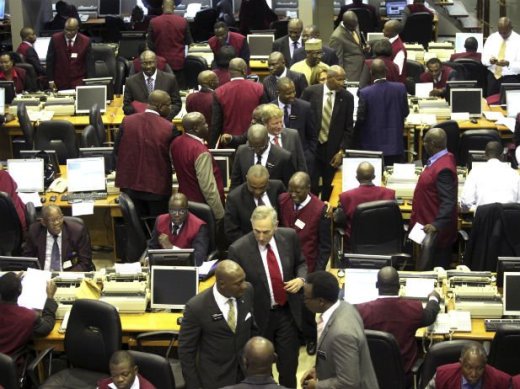Business
Stock market investors gain N1.81trn in September amid CBN reforms

Investors in Nigeria’s stock market recorded a massive gain of ₦1.811 trillion in September 2025, buoyed by renewed confidence driven by the Central Bank of Nigeria’s (CBN) monetary reforms.
Market analysts attribute the impressive performance to the CBN’s recent decision to reduce the Monetary Policy Rate (MPR) from 27.5% to 27%, a move that has shifted investor sentiment towards equities.
Analysis of the performance at the Nigerian Exchange Limited, NGX, in September showed that market capitalisation, which measures the total value of investments in the Exchange grew by over N1.811 trillion to N90.580 trillion from N88.769 trillion recorded in August.
Similarly, another major stock market gauge, NGX All Share Index, ASI, increased by 1.7% to 142,710.48 points from 140,295.50 points.
Analysts also said that the performance of the market was buoyed by renewed investor interest in key large-cap stocks. The market’s rebound reflected a combination of profit-taking from earlier dips and fresh buying in fundamentally strong equities, as traders positioned themselves ahead of potential market-moving domestic and global developments.
Investor sentiment was largely guided by corporate performance expectations, sector-specific optimism, and macroeconomic signals, which collectively contributed to a constructive, though measured, market tone.
Meanwhile, the NGX ASI closed on a positive note on Tuesday advancing by 0.23% to record 142,710.48 points, while market capitalisation gained N445.2 billion to close at N90.58 trillion. The market’s upbeat performance was predominantly driven by sustained buying interest in ARADEL, which grew by 9.82%, Fidelity Bank 5.26%, Nigerian Breweries 2.38%, and Transcorp 8.48 %.
However, the market breadth remained negative as there were more losers, about 31 stocks dip, while the market recorded 28 gainers.
Analysts at InvestData Consulting Limited, stated: “Looking ahead, the equities market appears poised for a cautious continuation of the recovery. Macro-economic factors such as domestic inflation trends, exchange rate volatility, and policy developments will remain critical in shaping market sentiment, alongside global cues such as crude oil prices and international risk appetite.”
(Vanguard)























